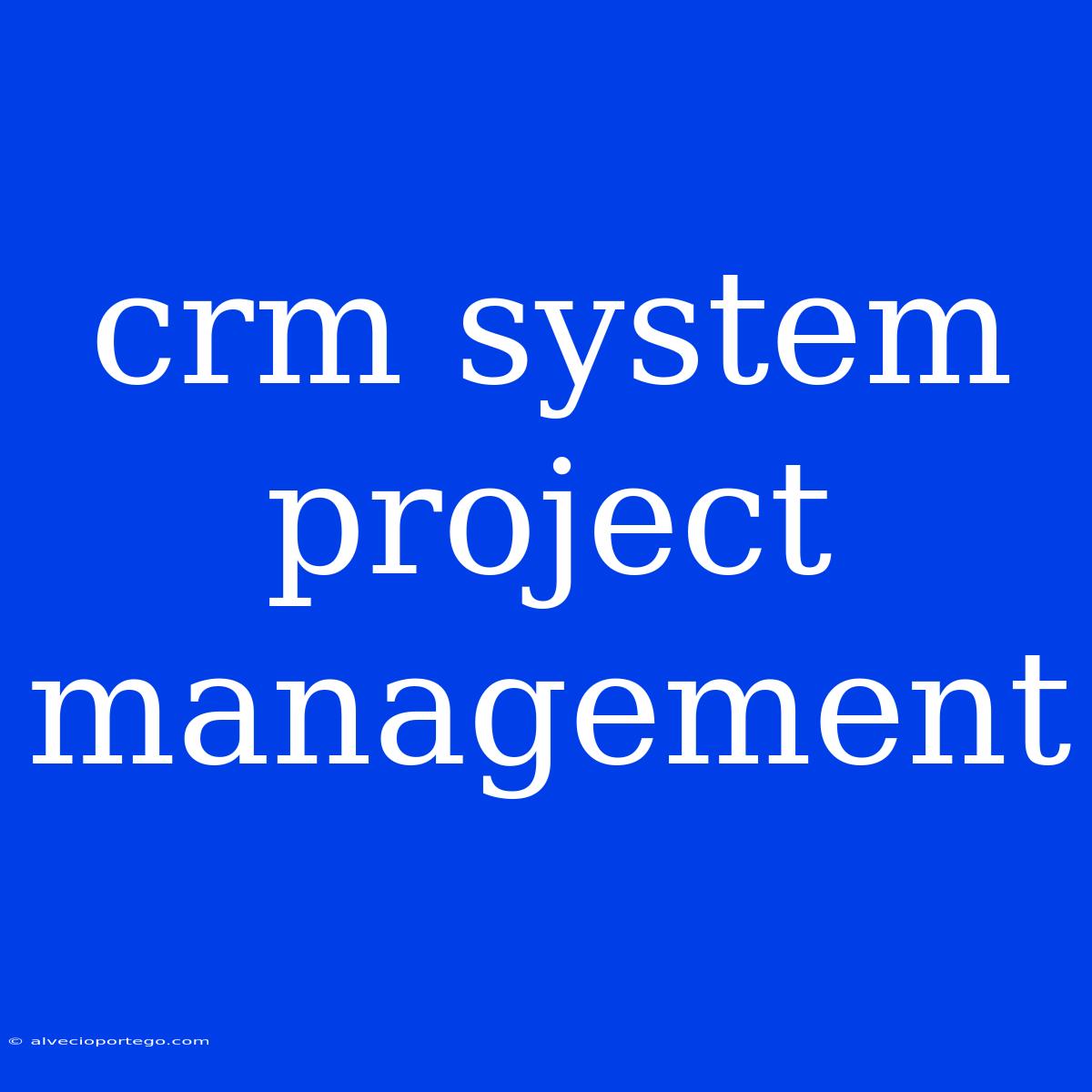CRM System Project Management: A Comprehensive Guide
A CRM system is a critical investment for any business looking to improve customer relationships and drive revenue. However, implementing a CRM system is a complex project that requires careful planning and execution. This article will provide a comprehensive guide to CRM system project management, covering key stages and considerations for success.
1. Defining Project Scope and Objectives
The first step in any project is defining clear objectives and scope. This includes:
- Identifying Business Needs: Clearly define the specific problems your CRM system is intended to solve, and how it will improve customer relationships, sales, marketing, and service operations.
- Defining Key Features: Outline the essential features and functionalities required within the CRM system to meet your specific business needs.
- Setting Realistic Goals and Metrics: Establish measurable goals and key performance indicators (KPIs) to track the success of your CRM implementation.
2. Selecting the Right CRM System
Choosing the right CRM system is crucial to project success. Consider the following factors:
- Business Size and Industry: Select a system that aligns with your company's size, industry, and specific requirements.
- Budget and ROI: Determine your budget and evaluate the ROI of different systems based on their features, pricing models, and potential impact on your business.
- Integration Capabilities: Ensure the CRM system integrates seamlessly with existing business applications like email marketing platforms, accounting software, and e-commerce systems.
- Scalability and Customization: Choose a system that can grow with your business and be customized to meet evolving needs.
3. Building a Strong Project Team
A well-structured project team is essential for effective CRM implementation. Consider the following roles:
- Project Manager: Responsible for overall project planning, execution, and communication.
- CRM Specialist: A subject matter expert responsible for system configuration, data migration, and user training.
- Business Analysts: Responsible for understanding business requirements and translating them into CRM system specifications.
- IT Specialists: Provide technical support, infrastructure management, and data integration expertise.
- End Users: Key stakeholders who will be actively using the CRM system, providing valuable feedback throughout the project.
4. Implementing the CRM System
Once the CRM system is selected, the implementation process begins. Key stages include:
- Data Migration: Transferring existing customer data from legacy systems to the CRM platform, ensuring accuracy and consistency.
- Configuration and Customization: Tailoring the CRM system to meet specific business needs, including workflow automation, dashboards, and reports.
- User Training: Providing comprehensive training for all users, covering system navigation, functionalities, and best practices.
- Testing and Go-Live: Thoroughly testing the CRM system to ensure its functionality and performance, followed by a carefully planned go-live phase.
5. Ongoing Maintenance and Optimization
CRM implementation is an ongoing process that requires continuous maintenance and optimization. This includes:
- Data Management: Ensuring data quality, accuracy, and consistency through regular data cleansing and updates.
- User Support: Providing ongoing support to users, addressing any issues or questions they may have.
- System Upgrades: Staying current with CRM system upgrades and updates to ensure optimal performance and security.
- Performance Monitoring: Tracking KPIs and analyzing system usage to identify areas for improvement and optimization.
6. Key Considerations for Success
- Communication and Collaboration: Maintain open communication channels between the project team, business stakeholders, and end users.
- Change Management: Prepare users for the transition to a new CRM system by clearly communicating the benefits and providing ample training.
- Data Quality: Invest in data cleansing and quality control to ensure accurate and reliable information within the CRM system.
- User Adoption: Foster user adoption by providing ongoing support, encouraging feedback, and demonstrating the value of the CRM system.
Conclusion
CRM system project management is a critical process for achieving business objectives and maximizing ROI on your CRM investment. By carefully planning, executing, and optimizing your CRM implementation, you can build stronger customer relationships, improve efficiency, and drive sustainable growth.

